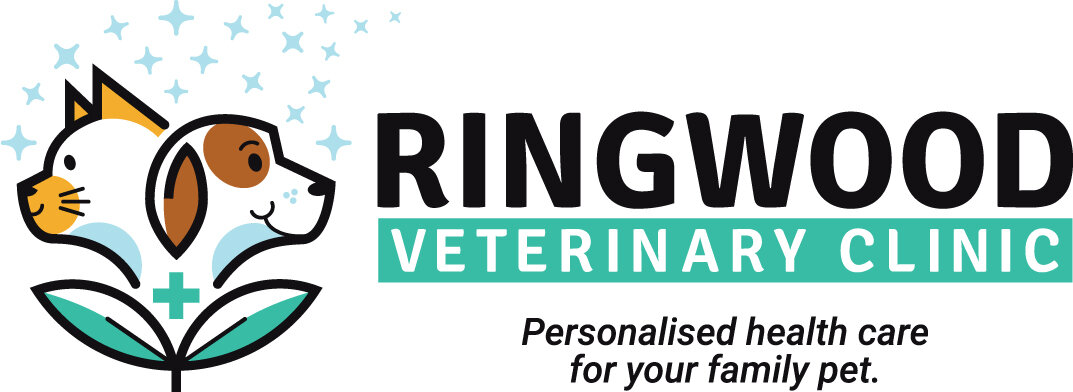Fear-Free Vet Visits for Dogs
In our last newsletter, we focused on helping cats feel more comfortable at the vet—so it’s only fair we give our canine companions the same attention this time around!
Did you know that 26% of dog owners feel stressed just thinking about taking their dog to the vet, and 37% say their dog hates going? The good news is—it doesn’t have to be this way.
At Ringwood Veterinary Clinic, we’re committed to making every visit as calm and positive as possible. But a stress-free experience starts well before you walk through our doors. Here are some simple ways you can help your dog feel more at ease:
Preparing for the Car Ride
Car rides can be a major source of anxiety for dogs. One common but often overlooked cause is motion sickness. Dogs don’t always vomit when they’re nauseous, so signs of discomfort can be easy to miss. If your dog seems anxious in the car, speak to our team about anti-nausea medication that may help.
Another factor? Negative associations. If your dog only ever goes in the car to visit the vet, groomer, or boarding facility, they may start to dread the ride. Try taking your dog on short, fun trips—like to the park or for a puppuccino—to help build positive associations.
Safety is key: Always secure your dog with a harness or carrier. Not only does this prevent them from moving around (which can increase anxiety), it also keeps everyone safe.
If your dog is already nervous in the car, try using positive reinforcement to change their mindset. Feed them in the car without going anywhere, do short training sessions with high-value treats, or play games in the car to create a more enjoyable experience.
Food, Glorious Food!
Food is one of the most powerful tools we have to create a positive vet visit. It’s not just a treat—it’s a way to build trust and reduce fear.
To boost your dog’s food motivation:
Avoid feeding them right before the visit so they’re more receptive to treats.
Bring your own treats, especially if your dog has dietary sensitivities.
Choose high-value treats—something extra special they don’t get every day, like cheese, ham, or chicken. These should be in tiny pieces for quick, easy rewards.
We always have treats on hand at Ringwood Vet, but nothing beats your dog’s personal favourites!
Arriving at the Clinic
If your dog becomes anxious around other animals, we recommend staying in your car and calling reception to let us know you’ve arrived. We’ll notify you when the coast is clear so you can head straight into the consultation room. There’s also a bench outside if your dog prefers to wait away from the waiting room.
To make your departure easier, we can settle your account in the consult room—so you can simply walk out when your appointment is done.
Leash Tips:
It is beneficial to have your dog adequately restrained.
Use a leash that’s not too long or too short.
Too long, and your dog might approach other animals; too short, and they may feel trapped.
A head collar offers excellent control, especially for dogs who tend to pull.
In the Consultation Room
Every dog is different. Some prefer to be examined on the floor, others on a non-slip mat, and some may dislike specific parts of the exam—like having their face touched or temperature taken.
Let us know your dog’s preferences. We’re more than happy to adjust our approach to make them feel more comfortable. Saving the less pleasant parts of the exam for last can also help reduce stress.
The Chill Protocol
For dogs who find vet visits particularly stressful, pre-visit anti-anxiety medication can make a big difference—even if it just helps them accept treats. Early intervention is key, as anxiety tends to worsen over time.
These medications are often used “off-label,” but they’ve been safely and effectively prescribed for many years. Finding the right dose and combination may take time, so we appreciate your patience as we tailor the approach to your dog’s needs.
Understanding Fear Responses: Flight, Fight, Freeze, Fiddle
Dogs express fear in different ways:
Flight: Trying to escape or avoid contact
Fight: Growling, barking, or biting
Freeze: Sitting perfectly still—often mistaken for being “well-behaved”
Fiddle: Lip licking, yawning, rolling over, hyperactivity, or excessive friendliness
These behaviours are all signs of stress. If your dog has shown aggression at the vet before, please let us know. There’s no shame—your dog isn’t “bad,” they’re just scared. Knowing in advance helps us take a more considerate, safe, and compassionate approach.
Muzzle Training
Sometimes, a muzzle is needed to safely complete an exam. But it should only be used if your dog is calm and comfortable wearing it.
We recommend muzzle training in advance using positive reinforcement. The Muzzle Up Project website is a fantastic resource. Look for soft rubber basket muzzles that allow your dog to pant and take treats. These are available at most pet stores and online.
At Ringwood Vet, we never force or restrain a distressed dog just to “get the job done.” That approach goes against our core values of Care and Respect.
Happy Visits & Victory Visits
We offer positive reinforcement visits:
Happy Visits: Drop in for treats, pats, and games—no exam, no stress. Great for puppies or dogs with mild anxiety. No appointment or fee required.
Let’s Work Together
A fear-free visit isn’t just a moment—it’s a mindset. By recognising and reducing fear, anxiety, and stress, we build trust between pets, their people, and our veterinary team.
With gentle handling, calming strategies, and open communication, we can help your dog feel safe, respected, and cared for—every step of the way.
Have questions or want to discuss your dog’s needs?
Our friendly team is here to help—just give us a call!

